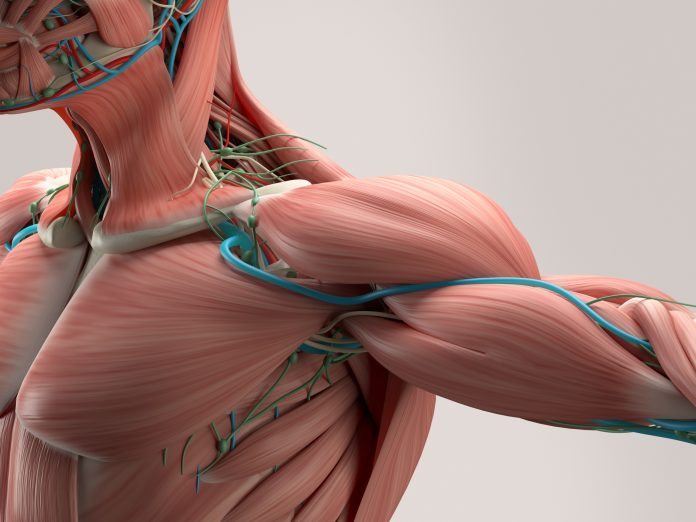Musculoskeletal (MSK) conditions represent one of the most significant and growing health challenges facing the UK today. Cathy Monaghan, Public Affairs and Policy Officer at the Arthritis and Musculoskeletal Alliance, posits for stronger policy action to support those affected
Musculoskeletal (MSK) conditions affect nearly one in three people. The challenges associated with MSK conditions are a leading cause of disability and a major driver of NHS demand and economic inactivity. Addressing MSK health more effectively is not just a healthcare priority; it is an economic and social necessity.
MSK conditions impact quality of life
Those with MSK conditions often live with life-limiting pain and symptoms which impact their wellbeing and every aspect of life, including work, learning, leisure, caring for family and living independently.
MSK conditions accounted for £6.3 billion of NHS spending in 2022 – 2023, making them the third-largest area of programme expenditure, with one in seven GP appointments related to MSK health. (1)
Furthermore, MSK conditions are the second most common cause of sickness absence, responsible for 30 million lost workdays each year. (2) The cost of lost productivity from conditions like osteoarthritis and rheumatoid arthritis alone is estimated to reach £3.4bn by 2030. (3)
Socioeconomic impact
While MSK conditions affect people across all demographics, their impact is far from equal. Deprivation significantly increases both the risk and severity of MSK ill health. People in more deprived areas are more likely to suffer from chronic pain, live with long-term MSK conditions, face longer waits for diagnosis and experience poorer clinical outcomes.
These inequalities are not inevitable. The Arthritis and Musculoskeletal Alliance (ARMA) carried out the first national MSK inequalities inquiry, which reported in March 2024 with the publication of the Act Now Report on MSK Inequalities. (4) The report underscores how preventable MSK ill health is exacerbated by socioeconomic inequalities, including poverty, education, employment and an environment that deters physical activity and a healthy diet. These issues are amplified in more deprived communities, where time, money, and access to support services are in short supply.
If the impact of MSK health inequalities is to be alleviated, policy must shift toward redesigning MSK services, combined with tackling deprivation and barriers to accessing treatment. Prevention must also lie at the heart of any solution. However, recommending healthier lifestyles is not enough. Behaviour change is difficult under any circumstances, but it is especially hard for someone managing pain, dealing with poverty, or lacking access to affordable, nutritious food or safe places for exercise. As ARMA’s report emphasises, any strategy must be co-produced with communities to truly reduce these barriers.
Children and young people
MSK conditions are not just a concern for older adults. These conditions are widespread among working-age people, and it is also vital that policy does not overlook younger populations.
Over 230,000 children across England and Scotland live with long-term MSK issues. Yet access to paediatric MSK services is inadequate, particularly in deprived areas. ARMA’s inquiry into MSK inequalities revealed evidence of the chronic lack of access and long journeys to developmentally appropriate MSK care for young people. Young people living with MSK conditions also reported that appropriate social support, such as peer support and mental health support, is limited in their experience.
These gaps can severely disrupt a child’s development, education, and social integration. Tackling this issue requires dedicated investment in developmentally appropriate MSK services, particularly in areas where access is most inequitable.
Prevention of poor MSK health and deterioration
Across a wide range of MSK conditions, delays to diagnosis are common. These delays contribute to prolonged suffering, worsened outcomes, avoidable healthcare costs, and unnecessary economic loss. Timely diagnosis and treatment are essential, but the support patients receive while waiting must also improve. Better communication, access to rehabilitation, and mental health support can all reduce deterioration and improve patient experiences during often long and uncertain waits.
Enabling people to manage their MSK conditions effectively is a key part of improving outcomes.
Patients need timely access to high-quality, supported self-management tools, tailored to reflect their condition, mental health needs and lifestyle. Unfortunately, access to these resources remains inconsistent across the country. ARMA’s inquiry heard from clinicians and patients about the importance of such support in preventing escalation to secondary care and in helping people to live healthier, independent lives for longer.
Keeping people in work
Investment in MSK health is necessary for economic success. MSK conditions remain the second most common reason for issuing fit notes in England from 2022 to 2023. (5) These conditions are widespread among working-age people, with some entering the labour market already managing long-term conditions diagnosed in childhood.
Most people with MSK conditions want to work, and doing so benefits their mental and physical wellbeing. However, the NHS and employers must offer support to stay in work, such as personalised management plans and flexibility in roles to accommodate the fluctuating nature of many MSK conditions.
Employers need clear guidance on how to adapt roles, allow time for medical appointments and provide appropriate mental health support. Supporting employees to stay in work is not just a health goal; it is key for our economy.
Responding to the challenge
MSK conditions are often preventable, manageable, and treatable when the right systems are in place. A joined-up and integrated whole system approach to prevention must be taken that includes:
- Investment in prevention, early intervention and supported self-management;
- Addressing the social determinants of health;
- Co-produced and community-driven services, particularly in more deprived areas; and
- Better access to paediatric MSK services.
Responding to the challenge of avoidable MSK ill health requires political will, systemic reform and, crucially, action by healthcare professionals, MSK services and local health systems, which could benefit the millions of people living with MSK conditions across the UK.











